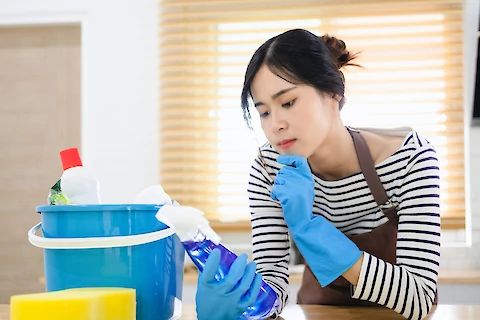
Recognizing hazardous items in seniors' homes is crucial. With age-related health concerns, seniors face increased vulnerability to household dangers. From expired medications to unsafe cleaning products, identifying and addressing these risks proactively can significantly enhance their safety and well-being.
Health Risks in Senior Households
Health risks associated with toxic items in senior homes can vary widely, from mild allergic reactions to severe health complications. Seniors often have a weakened immune system, making them more susceptible to harmful substances. Expired medication or cleaning products, which may appear harmless, can pose significant health risks to older adults. They can cause respiratory issues, skin irritation, or even poisoning, particularly in severe cases.
Identifying Toxic Items in Senior Homes
Prescribed medications are crucial for senior health management. However, expired medications may lose their effectiveness and sometimes can be harmful. Regularly check the dates on medication bottles and remove any that have passed their expiration date. Remember to include everything from daily prescriptions to occasional over-the-counter drugs in this audit.
Several cleaning products contain chemicals that can be harmful if inhaled or come into contact with the skin. With their potentially reduced immunity, most older adults are much more likely to be affected. It's wise to read the labels of cleaning products and avoid those with harsh, potentially harmful chemicals. Opt for milder, less toxic cleaning products instead.
Other typical toxic items can include certain types of houseplants, mold, and some kinds of canned food. Regularly inspect the home for these items. If you need clarification, research it or consult a health professional.
Preventing Exposure to Toxic Items
Protecting seniors from exposure to toxic items requires putting in place some proactive strategies to make their home environment safer. Medications should be kept in their original containers, clearly labeled, and stored out of reach.
Store cleaning products in a locked cabinet, away from the senior’s reach. Refrain from using these products while the senior is nearby. It minimizes potential exposure to harmful chemicals, inhalation of fumes, skin contact, or accidental spills.
To prevent exposure to other toxic substances, ensure the home is well-ventilated. Adequate airflow helps reduce the risk of mold growth, which can exacerbate respiratory issues in seniors with weakened immune systems.
Regularly check canned food items for spoilage before consumption. Consuming spoiled food can lead to food poisoning or other adverse health effects. Check for bulging lids, unusual odors, or visible signs of contamination.
Do not throw expired medication in the trash. Avoid flushing them down the toilet. Most pharmacies and many community groups offer safe medication disposal programs. Many cleaning products require special disposal procedures to ensure they don't contaminate the water supply or harm the environment. Local waste facilities often provide resources and instructions for safe disposal.
Get In-Home Care Support With Senior Helpers of South Minneapolis
Part of providing senior safety is ensuring their living environment is free from potential hazards. By understanding the risks, identifying potential toxic items, and implementing prevention measures, you can create a safer, healthier living space for our senior loved ones.
If you need help caring for a senior loved one in Minneapolis, Saint Paul, Minnetonka, and Hennepin County, MN, Senior Helpers of South Minneapolis can help. We provide professional in-home care and can help with home safety evaluation, light housekeeping, companionship, and more. Contact us to learn more about our senior care services!